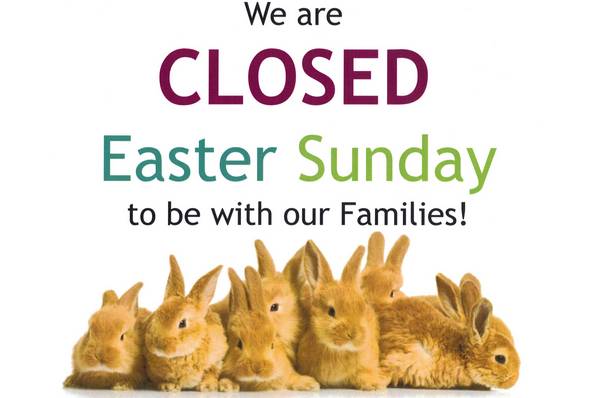Easter Trading Laws A ‘Shambolic Mess’
 Media Release 7 March 2017
Media Release 7 March 2017
Family First NZ says that amendments to Easter trading laws thrust upon local councils has resulted in rushed decisions, often against the majority views of submissions, and inconsistencies across the country.
“Wellington has failed to make a decision in time, yet over the hill, Masterton and Carterton will be opening (despite overwhelming opposition to the proposal in Masterton). In the Bay of Plenty, Tauranga has run out of time but Rotorua will be open. Both Nelson and Tasman have voted against allowing it. The Easter trading laws passed by the government have done nothing to solve the perceived problems, and have been a ‘hospital pass’ to local councils. The only people celebrating this law change will be those who are making money from it,” says Bob McCoskrie, National Director of Family First NZ.
The Workplace Relations and Safety Minister stated, when introducing the law change: “The historical Easter Sunday shop trading exemptions are out of date and create an unfair advantage for certain businesses and regions that can continue trading while others stay shut.”
“Ironically, the inconsistency has continued under the new law because one local authority can allow Easter Sunday trading while another local authority nearby may not change the restriction. The law has done nothing to change that inconsistency. What would have fixed the inconsistency is for the law to be applied evenly and consistently across the nation.”
“New Zealanders deserve the break,” says Mr McCoskrie.
“Changes to trading laws should be done at a national level. It is the ad hoc local application of the laws that has led to the confusion and inconsistency over the past number of years. The ‘unfair advantage’ referred to has only come about because of the inconsistent application of the law by the Ministry of Business, Employment and Innovation (MBIE) who were turning a blind eye to the law.”
“We know that Christmas and Anzac Day will soon be targeted because there is money to be made.”
“But economic improvement needs to be finely balanced with family and community time. Anzac Day, Easter, and Christmas remain as the few times when the whole country stops and takes a break. This is not an issue about choice as has also been argued. For many workers, they don’t have the luxury of choice as to whether they work or not. Coercion to work will be a very real threat,” says Mr McCoskrie.
“Tourists will cope. Many countries have public holidays with shops closed, and tourists simply plan around it, accepting it as part of the local culture and identity,” says Mr McCoskrie.
“We should keep the Easter culture.”
ENDS






